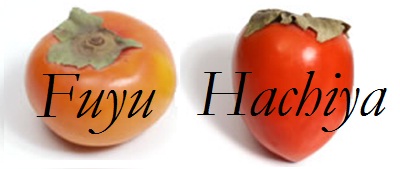Persnickety persimmons
/Didn't you think the tray of persimmons I photographed yesterday was just lovely? I did. Looking at them made me feel positively cozy inside, and I couldn't wait to work with them. To jump right into them, simply, quickly and flavorfully, I thinly sliced two and poached them in some diluted pear brandy and a sprinkle of sugar. They looked beautiful, and the initial taste was wonderful. But then...dunh, dunh... AWFUL!
The immediate aftermath of good was that my tongue felt it'd been enrobed by some bitter, rough-skinned sleeve. My teeth felt covered in a most unpalatable fur, and after three attempts, I sadly tossed the whole mess into the trash. There are different theories about why persimmons can have this effect: they aren't ripe enough; they weren't cooked long enough; my taste receptors and their flavors just do not mesh; some types of persimmons are more prone to this than others... My primary thought was "apple of the Orient" my foot.
Unsatisfied by my questions that remained despite these hypotheses, I turned to Harold McGee, or as I like to call him, Dr. Kitchen Science. In his wonderful tome, On Food and Cooking: The Science and Lore of the Kitchen, McGee provides a summary of the history and types of persimmons, notably that they fall into either the astringent or nonastringent categories. Aha! The astringent varieties, including the Hachiya, "have such high levels of tannins that they're edible only when completely ripe, with translucent and almost liquid flesh." Clearly what I thought was ripe was simply not so. McGee says such astringency can be overcome by, in addition to ripening, wrapping the fruits tightly in saran wrap because if deprived of oxygen, astringent persimmons shift their metabolic process in such a way that the tannins rebind and thusly cannot bind to our tongues.
As I refuse to cede victory over these innocent-looking fruits, I am off to wrap my astringent friends now. With the others which, I believe, are the Fuyu type, I am considering a spiced persimmon bread of some sort, after more ripening of course. However, wouldn't a whole loaf of yuk be a wild disappointment and waste of ingredients?! C'est vrai. Blimey... I'll let you know.
As a helpful visual, I've borrowed this photo from an image search:
